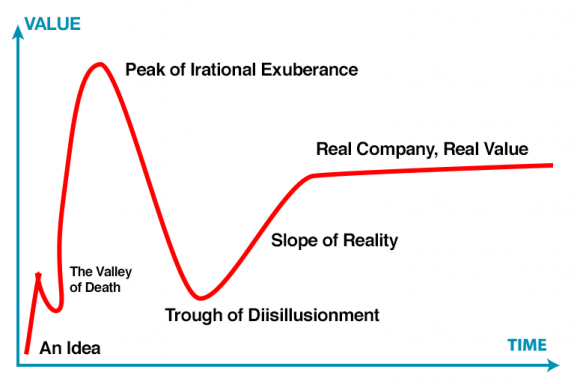
Wall Street has a hot new old tool, the special purpose acquisition company, a.k.a. the SPAC. This is a public company that is nothing more than a pool of capital and set of advisors in search of a business to buy. It is supposedly a more efficient path for private companies to become public companies instead of the following the traditional IPO.
At worst it is flawed solution to a flawed IPO process. At best it is solving symptoms instead of systems.
In the traditional IPO system, the investment banks take advantage of the private companies trying to list on an exchange. The CEOs and boards at the private companies typically experience one IPO per lifetime vs. dozens per year for the banks. Thus the banks have designed a system where they and their institutional investor customers keep a large percentage of the gains generated by the IPO.
The SPACs move these gains from the banks and their customers to the SPAC sponsors and their investors. The SPACs buy companies at a similar discount to what they would have received from the IPO and companies agree to that deal as the SPAC process is quicker and easier than an IPO.
In either case, here in the 2020s only the private companies worth multiple billions of dollars can afford to be public in the United States. The crash of the dot-com bubble and the massive fraud of Enron led to a regulatory framework that costs millions of dollars annually in legal and accounting fees to negotiate.
A better solution would be twofold, to simplify the filings for smaller companies and to openly auction shares in those companies when they are first listed. Google proved the auction model works back in 2005. W. R. Hambrecht advocated for an Open Auction system back in the late 1990s.
In any case, whereas a SPAC is a pile of money looking to invest in one great company, my latest startup, Africa Eats, is an anti-SPAC, a portfolio of investments in great companies seeking a pile of money.
I explain why a holding company is a better model than a venture capital fund in this blog post over on the AfricaEats.com blog. The plan is to list that company on an Africa stock exchange ASAP. The regulatory system over there makes that process affordable, and the result is an investment where investors are not beholden to the timeline of the investees or fund manager, but instead similar to a mutual fund or ETF, where they can come and when they choose.
Africa Eats is out to prove this anti-SPAC model and when it works, the plan is to repeat with other themes both in Africa and elsewhere around the world.














